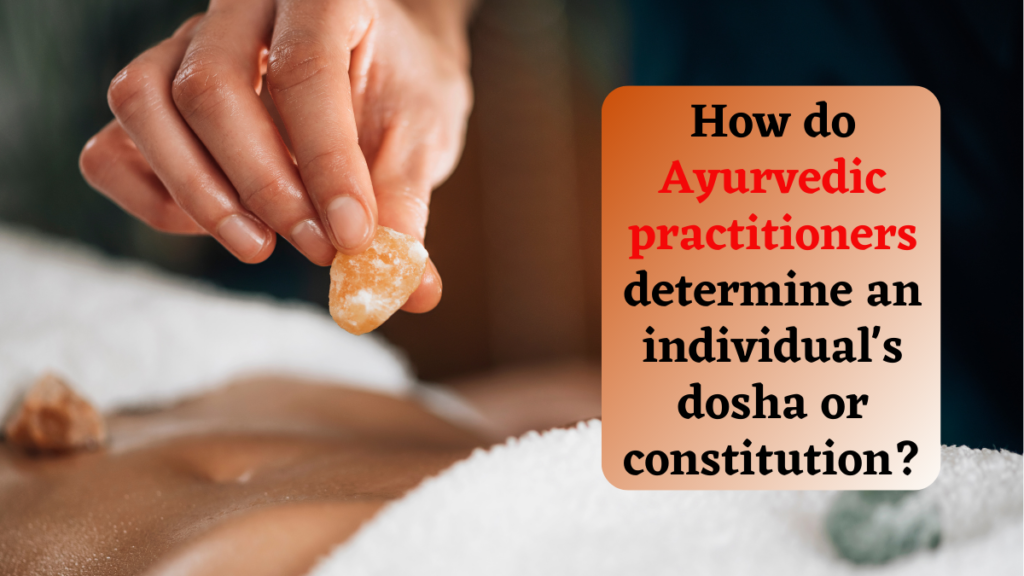Introduction
Ayurvedic practitioners determine an individual’s dosha or constitution through a comprehensive assessment of various factors, including physical, mental, and emotional characteristics, How do Ayurvedic practitioners determine an individual’s dosha or constitution?

The process typically involves the following:
Prakriti Analysis (Natural Constitution):
- Observations: Practitioners observe physical features such as body type, build, weight distribution, hair and skin characteristics, and facial features.
- Questioning: Detailed questioning about personal habits, preferences, sleep patterns, and general lifestyle helps in understanding inherent traits.
Vikriti Analysis (Current Imbalance):
- Examination of current symptoms or imbalances is crucial to identifying the doshic disturbances.
- Analysis of diet, digestion, elimination, and overall lifestyle habits is conducted.
Pulse Diagnosis (Nadi Pariksha):
- Ayurvedic practitioners often use pulse diagnosis to assess the balance of the three doshas (Vata, Pitta, Kapha) and the overall state of the body’s tissues (Dhatus).
- The pulse is felt at various points on the wrist, and specific qualities are associated with each dosha.
Tongue Examination (Jivha Pariksha):
- The appearance of the tongue, including color, coating, and any markings, is examined to gain insights into the individual’s doshic balance.
Iris Examination (Iridology):
- Some practitioners may also use iridology, which involves studying the patterns, colors. Other characteristics of the iris to assess the constitution and potential imbalances.
Dosha-Specific Questionnaires:
- Completing questionnaires about your physical and mental health can help healthcare professionals create a personalized treatment plan for you. As well as their daily routines and habits. These responses help in dosha determination.
Seasonal Considerations:
- Ayurveda recognizes the influence of seasons on individuals. Practitioners may consider the impact of seasonal changes on a person’s doshic balance.
Practical Experience and Intuition:
- Experienced Ayurvedic practitioners often rely on their intuition. Practical experience to assess an individual’s constitution. taking into account the interconnectedness of mind, body, and spirit.
Family and Medical History:
- Gathering information about family medical history and the individual’s own health history aids in understanding genetic and environmental factors affecting dosha balance.
Conclusion
By combining these various assessment methods. Ayurvedic practitioners can determine an individual’s dosha constitution and tailor recommendations for diet. lifestyle, and therapies to restore or maintain balance within the body and mind. It’s important to note that Ayurveda considers each person unique. Individual characteristics and imbalances guide the creation of personalized treatment plans.










